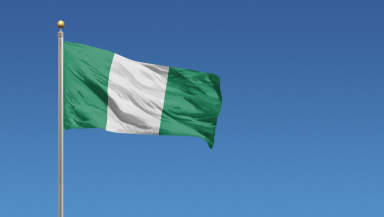
As deadly attacks on Christian communities continue across central Nigeria, worshippers in Plateau State gathered this month to pray for relief, healing and justice.
The call to prayer followed a series of violent assaults blamed on Fulani herdsmen, part of a long-running crisis in Nigeria’s Middle Belt region.
On 9 July, churches across Bassa County’s Miango District, home to the largely Christian Irigwe ethnic group, held special services calling on God’s intervention. The gatherings were organised by local church leaders after what they described as the government’s continued failure to prevent the killings.
“We must rise and stand in the gap – for Irigwe, Plateau state and Nigeria as a whole,” said Rev Joshua Bari, local chairman of the Christian Association of Nigeria (CAN), and Rev Adamson Gado, president of the Irigwe Ministers Forum (IMF), in a joint statement. They urged every household, church and business to take the day seriously as a moment of intercession.
The appeal came just days after fresh violence in the region. On 26 June, suspected herdsmen attacked Jebbu Miango village, killing one Christian and wounding two others. That same day, large areas of farmland in Nzhwerenvi and Nkienwhie were destroyed in what residents said was a targeted act of aggression.
Three days earlier, on 23 June, gunmen reportedly entered the villages of Zowrru and Taegbe in Teegbe District, killing three people, including two children. Those killed were identified as 30-year-old Sibi Monday, 15-year-old Bako Mali Dih, and 13-year-old Ladi Bala. Two others, Esau Bala and Asabe Bala, aged 20 and 16 respectively, were injured. Community leader Joseph Chudu said the pattern of violence followed previous attacks in which Fulani militias deliberately targeted Christian civilians.
“This attack mirrors previous incidents,” Chudu told Christian Daily International-Morning Star News. “In spite of this, we will continue to demand justice and peace in our communities.”
Other villages in the area, including Kpachudu and Nkiendowro, have also suffered recent assaults. In one such attack, a nine-month-old baby was reportedly among four Christians killed, along with two women.
Further afield, global support was expressed during the Baptist World Congress, held in Brisbane, Australia from 7 to 12 July. A major part of the event was dedicated to prayer for persecuted Christians, including those in Nigeria. Thousands of Baptist delegates from around the world joined in what organisers described as a “powerful solidarity moment”.
“May God’s comfort, strength, and justice abound for our sisters and brothers facing trials,” the host church said in a statement.
Though not all Fulani adhere to radical views, reports have documented that some factions among the herdsmen have adopted Islamist ideologies. A 2020 report by the UK Parliament’s All-Party Parliamentary Group on International Freedom of Religion or Belief stated that some Fulani groups “demonstrate a clear intent to target Christians and potent symbols of Christian identity”.
Nigerian Christian leaders have long warned that many of these attacks are part of a broader effort to seize land and displace Christian communities. Environmental degradation, including desertification, has also intensified tensions over land use between herders and farming populations.
Nigeria remains one of the most dangerous countries in the world to be a Christian, according to the 2025 World Watch List published by Open Doors. Of the 4,476 Christians reported killed for their faith globally during the monitoring period, 3,100 – or 69 per cent – were in Nigeria alone.
The report also highlights a wider crisis of insecurity in the country’s north and central regions, where jihadist groups such as Boko Haram and the Islamic State West Africa Province (ISWAP) remain active. Christians in these areas frequently face threats including mass killings, sexual violence, and abductions. A newly emerged group, Lakurawa, has begun operating in the northwest, reportedly with links to the al-Qaeda affiliate Jama’a Nusrat ul-Islam wa al-Muslimin (JNIM).
Nigeria currently ranks seventh on the World Watch List of the 50 countries where Christians face the most extreme persecution.



